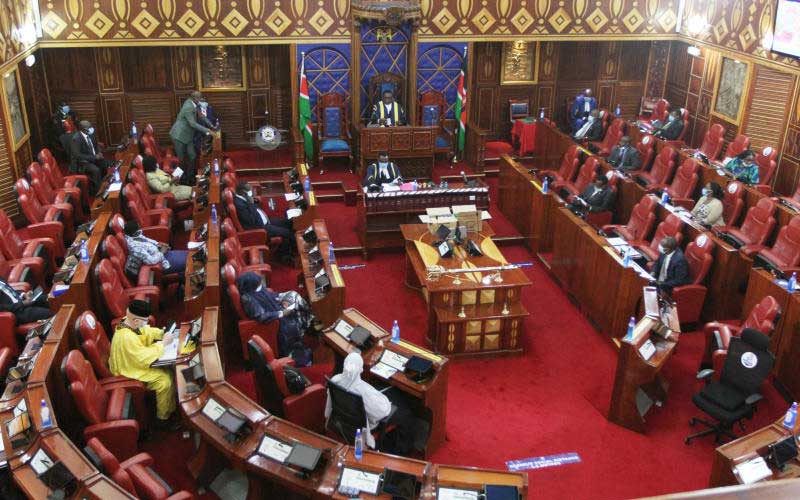×
The Standard e-Paper
Kenya’s Boldest Voice

The Senate during a past session. [File, Standard]
Kenya’s democratic space shrunk significantly following the arrest and rendition of three senators to their home counties on a day they were to participate in the contentious county revenue sharing formula debate.